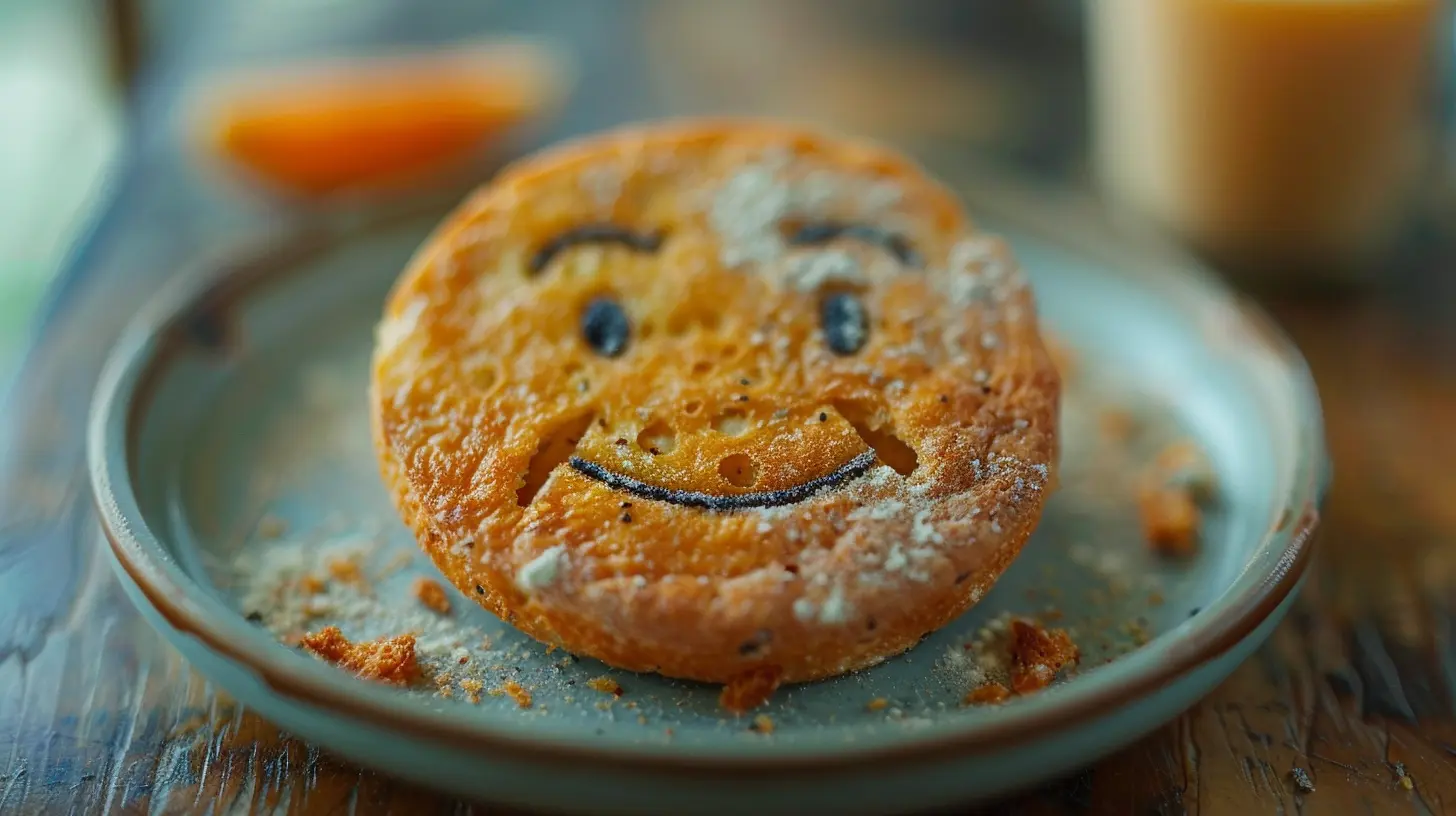The Psychological Impact of Going Gluten-Free: What to Expect
18 August 2025
Going gluten-free is often associated with physical health improvements—reduced bloating, more energy, and relief from digestive discomfort. But what about the psychological effects? Many people don't realize that eliminating gluten can impact the mind just as much as the body.
If you're thinking about hopping on the gluten-free train, or you've recently made the switch, this article will walk you through the emotional and mental shifts you might experience. Some of them may surprise you! 
The Mental Rollercoaster of Going Gluten-Free

1. The Initial Excitement and Motivation
At first, going gluten-free can feel empowering. Perhaps you've been struggling with digestive issues, brain fog, or frequent fatigue, and now you've found a possible solution. You're ready to take control of your health, and that’s an exciting feeling!During this initial stage, you might feel motivated, energetic, and hopeful. You’re researching gluten-free recipes, reading ingredient labels like a detective, and feeling proud of your decision.
But then reality sets in… 
2. The Overwhelm and Frustration Stage
After the honeymoon phase, you may start realizing just how much gluten is woven into daily life. Bread, pasta, pizza, soy sauce… even some salad dressings and medications contain gluten.It’s frustrating. Eating out suddenly feels like a research project, and social gatherings become stressful. You might feel like the "difficult" one asking about ingredients or double-checking the menu.
And let's be real—sometimes gluten-free alternatives just don't hit the same. A dry, crumbly gluten-free cookie? No, thank you!
This stage can be mentally exhausting, but it’s temporary. Once you adjust, it gets easier.
3. The Social and Emotional Challenges
Food is deeply tied to our emotions and social interactions. When you go gluten-free, you might feel isolated or left out in certain situations.- Friends and Family Reactions: Some will be supportive, but others might not take your new lifestyle seriously. You might hear, "One bite won’t hurt!" or "Are you really allergic to gluten, though?"
- Feeling Left Out: Pizza nights, birthday cakes, and spontaneous burger runs might no longer be as simple as they used to be.
- Grieving Certain Foods: Yes, food grief is a real thing! Saying goodbye to your favorite pastries or comfort foods can feel like a loss.
The key here is to find alternatives that actually make you happy. Over time, you’ll discover gluten-free versions of your favorite treats that won’t leave you feeling deprived.
4. The Psychological Benefits: More Than Just a Diet Change
Now, let’s talk about the mental perks of going gluten-free. Yep, ditching gluten doesn’t only affect your gut—it can seriously impact your brain, too.Clearer Thinking and Reduced Brain Fog
Ever feel like you're thinking through a cloud? That hazy, sluggish feeling—often called "brain fog"—is common for people sensitive to gluten. Eliminating it from your diet can lead to sharper thinking, better focus, and improved mental clarity.More Stable Moods
Mood swings, irritability, or even mild anxiety and depression have been linked to gluten sensitivity in some individuals. If gluten was triggering inflammation or disrupting your gut microbiome, removing it might help stabilize your emotions.Better Sleep
Some people report sleeping more soundly after going gluten-free. If your body was previously dealing with constant low-grade inflammation from gluten consumption, you might notice an improvement in sleep quality.Increased Energy Levels
Fatigue is a common symptom of gluten intolerance. When your body isn’t struggling to process something it doesn’t tolerate well, those energy reserves can go toward more productive things—like getting through the day without needing a nap!5. The Psychological Stress of Perfectionism
Going gluten-free isn't always a straight path—it comes with mistakes, accidental glutenings, and moments of weakness. And that’s okay!However, some people develop an unhealthy obsession with avoiding gluten, leading to food anxiety or even orthorexia (an extreme fixation on "clean" eating).
If you find yourself feeling anxious every time you eat something, or you're avoiding social situations just to stay on track, take a step back. Your gluten-free journey should be about health and balance, not stress and fear.
6. Acceptance and Finding Your New Normal
Eventually, you’ll find a rhythm that works for you. You'll have your go-to gluten-free brands, favorite restaurants, and trusted recipes. You'll learn how to advocate for yourself without feeling awkward.And most importantly, you'll realize that going gluten-free isn’t just about food—it’s about feeling better physically and mentally.
Sure, you might still miss real croissants from time to time, but when you remember how much better you feel, it’s a trade-off worth making. 
Final Thoughts
Going gluten-free isn't just a diet change—it’s a whole lifestyle adjustment. The mental and emotional side of it can be just as impactful as the physical benefits.You might experience frustration, social challenges, and food cravings, but you’ll also gain mental clarity, emotional stability, and better overall well-being.
At the end of the day, the key is to listen to your body and do what feels right for you. Whether you're gluten-free by necessity or choice, your mental health matters just as much as your physical health.
So, take it one step at a time. You’ve got this!
all images in this post were generated using AI tools
Category:
Gluten FreeAuthor:

Madeline Howard
Discussion
rate this article
1 comments
Mitchell Brooks
Freedom or restriction: choose wisely.
August 29, 2025 at 4:45 AM

Madeline Howard
Choosing gluten-free can empower your health, but it's essential to balance freedom from gluten with mindful eating habits.


